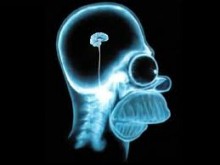The term “brain-food” h as been hotly debated by researchers and clinicians alike. Can we really feed our brains? And can mental health be improved through diet? The answer, it turns out, is yes! Nutrition plays a critical role in mental health and is also important for our cardiovascular and gastrointestinal systems. Over time, humans have begun to consume a diet high in processed foods and meat, both of which are detrimental to our health. Through processing and refinement, foods have lost their nutritional value and have contributed to mental and physical decline.
as been hotly debated by researchers and clinicians alike. Can we really feed our brains? And can mental health be improved through diet? The answer, it turns out, is yes! Nutrition plays a critical role in mental health and is also important for our cardiovascular and gastrointestinal systems. Over time, humans have begun to consume a diet high in processed foods and meat, both of which are detrimental to our health. Through processing and refinement, foods have lost their nutritional value and have contributed to mental and physical decline.
- So, what should we be eating? One important nutrient for brain efficiency is vitamin B12, which is important for proper neurotransmitter function.
- Common foods containing B12 include shellfish, fish, low fat dairy and eggs. Omega-3 fatty acids, also commonly found in shellfish, are converted to a neuronal membrane component called DHA, which affects brain-derived neurotrophic factor (BDNF).
- BDNF supports growth of new neurons and helps existing neurons thrive. Individuals with mood and anxiety disorders can benefit from an increase in BDNF as it helps with neuronal function and the development of the central nervous system.
- Nuts, too, have been shown to increase the levels of BDNF.
- As for meat, moderation is key. While containing all of the amino acids necessary for protein synthesis, much of the meat we consume is not healthy for us because of the high fat content due to corn-fed animals, and the use of antibiotics in the animal-farming industry.
- Legumes can serve as an alternative source of protein, and also happen to contain antioxidants, chemicals important for central nervous system function.
So, to feed our brain and decrease our chances for mood and anxiety disorders, we should consume a diet of seafood, leafy greens, nuts, and legumes. Imagine how much better the rest of our bodies will function when our brains are well fed!
Just remember, next time you eat, you are not only feeding your body, you are feeding your brain.

